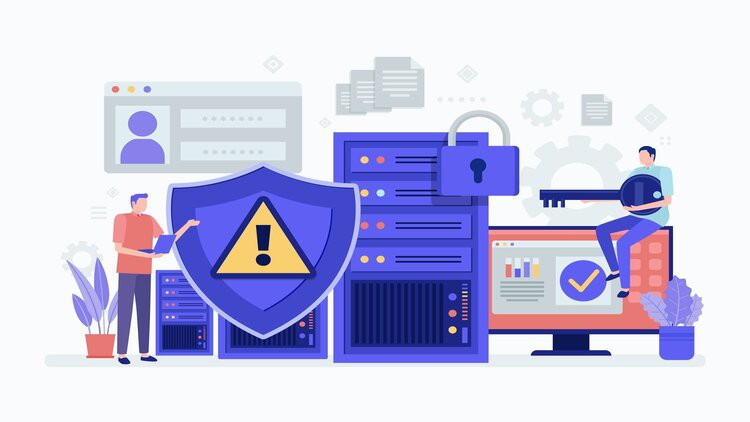Cyber Security Awareness Program Quiz Test

Why take this course?
Protecting yourself when using public WiFi involves a combination of best practices and technology solutions. Here are some key steps to consider:
-
Use a Virtual Private Network (VPN): A VPN creates a secure connection between your device and the internet, encrypting all data you send and receive. This is one of the most effective ways to protect yourself from eavesdropping and session hijacking because even if your data is intercepted, it will be unreadable to anyone who is not authorized to access it.
-
Look for HTTPS: Always ensure that websites you visit are secure by checking for HTTPS in the address bar. This means the connection between you and the site is encrypted.
-
Update Your Software: Regularly update your operating system, browser, and any security software to protect against known vulnerabilities.
-
Disable File Sharing: When using public WiFi, turn off file sharing on your device to prevent unauthorized access to your files.
-
Use Multi-Factor Authentication (MFA): MFA adds an extra layer of security to your online accounts. Even if a hacker obtains your password, they would still need the second factor to gain access.
-
Be Cautious of Free WiFi Networks: Be skeptical of free WiFi networks that require personal information for access. Always verify the legitimacy of the network and consider whether providing personal information is necessary.
-
Avoid Sensitive Transactions: If possible, avoid conducting sensitive transactions (like online banking or shopping) over public WiFi. If you must perform such activities, use a VPN and ensure the connection is secure.
-
Use Anti-Malware Software: Keep your anti-malware software up to date and run regular scans to protect against malware.
-
Disable Automatic Connections: Turn off the feature that allows your device to automatically connect to WiFi networks it has connected to before. This can prevent you from inadvertently joining a rogue network.
-
Be Wary of Free Hotspots: If a hotspot seems out of place or is advertised in a public area like a park, be especially cautious. These could be set up by attackers to lure users into connecting.
-
Use Cellular Data When Possible: For sensitive activities, consider using your mobile device's cellular data connection instead of relying on public WiFi.
-
Monitor Your Accounts: Regularly check your bank accounts and credit card statements for unauthorized transactions. If you notice any suspicious activity, report it immediately to your financial institution and contact a cybersecurity expert.
By following these steps, you can significantly reduce the risks associated with using public WiFi. Remember that security is a continuous process, and staying informed about the latest threats and best practices is key to keeping your data safe.
Loading charts...